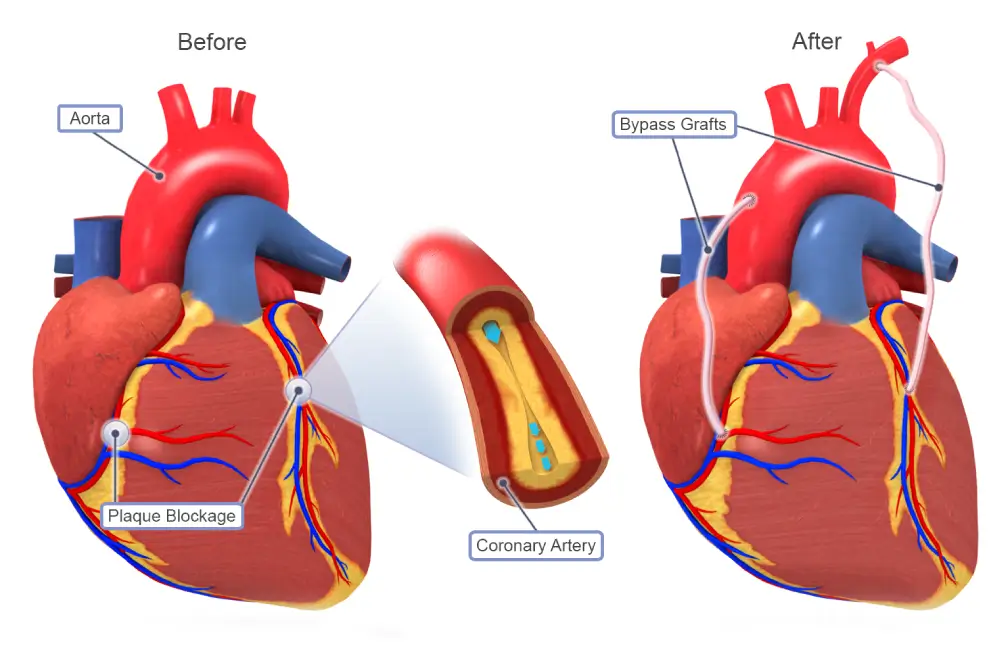Coronary artery bypass graft (CABG)
Overview

Why it's done
- Severe blockage or narrowing in the coronary arteries that limits blood flow to the heart muscle.
- Significant damage or disease affecting multiple heart arteries, reducing heart function.
- Ineffectiveness or unsuitability of less invasive procedures like angioplasty or stenting to address arterial blockages.
- Presence of critical blockages, especially in the left main coronary artery, impacting blood supply to a substantial portion of the heart.
- Persistent chest pain (angina) despite medication or other treatments, indicating reduced blood flow to the heart.
Risk
- Bleeding
- Infection
- Arrhythmias
- Blood clots
- Pneumonia
- Kidney problems
- Memory or cognitive changes
- Stroke
- Death
How do I get ready for coronary artery bypass surgery?
- Your healthcare team will conduct a thorough assessment of your overall health, including tests like blood work, imaging scans, and an electrocardiogram (ECG/EKG).
Your doctor may ask you to stop or adjust certain medications before the surgery. It’s crucial to follow their instructions regarding which medications to continue or discontinue.
You’ll have discussions with your surgeon and medical team to understand the procedure, potential risks, and expected outcomes. Ask any questions you have to alleviate concerns and gain a better understanding of what to expect.
Your healthcare provider might recommend certain lifestyle modifications such as dietary changes, exercise routines, and smoking cessation to improve your overall health and aid in recovery.
Before the surgery, you may need to make arrangements at home for post-surgery care, such as assistance from family or friends, and preparing a comfortable recovery space.
You’ll likely receive instructions on fasting prior to the surgery. It’s essential to adhere to these guidelines to prevent complications during the procedure.
Preparing mentally and emotionally for the surgery is crucial. Engage in relaxation techniques, seek support from loved ones, or consider talking to a counselor if needed.
Attend all pre-operative appointments and follow-up consultations as scheduled by your healthcare provider.


